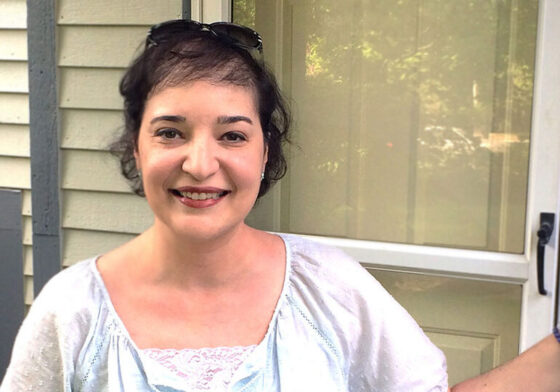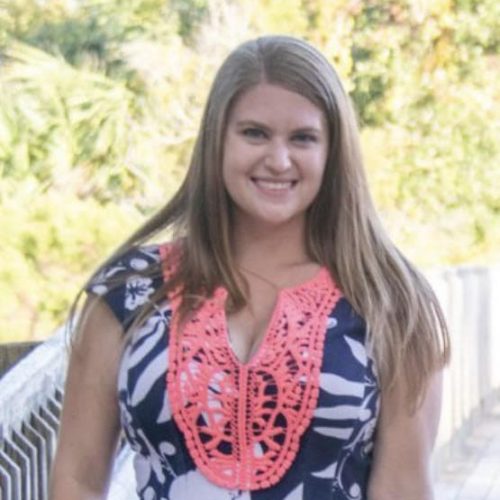
About a year before my diagnosis, I started noticing signs that something was wrong but chose to ignore them. I went out of my way to justify them to myself thinking, “Of course I’m tired, I’m working a lot.” I had just finished graduate school, which was exhausting and included a few 24-hour work days. I also noticed I was getting emotional and irritable, which was very uncharacteristic of me.
Instead of my normal cheery, positive self, everything was dramatic and difficult. I thought, “This is just a transition in my life—I’m starting work and it’s a big change.” Both the tiredness and irritability lasted for a long time, but I continued to ignore them.
Then I started noticing physical symptoms that didn’t jive. I was congested, and had difficulty swallowing. It felt like there was something stuck in my throat that I couldn’t get rid of. The physical symptoms persisted for weeks, and the difficulty swallowing got worse, which is what finally pushed me to see my doctor.
I was kept waiting in the patient room for an hour, getting more and more anxious. When my doctor came to see me, he didn’t do any physical exam, just said, “Honestly, you’re a young woman and you look fine. Maybe it’s allergies.” I tried explaining my other symptoms because I knew in my gut that they were different from my normal. Again my doctor insisted that I was fine.
On my way home, I pushed away my gut feeling that my symptoms didn’t make sense. I figured that if a medical practitioner told me I was fine, of course I was fine. I spent the rest of the summer ignoring the emotional and physical changes.
“If I hadn’t ignored the signs and trusted my gut to get a second opinion sooner, the treatment might not have been as invasive.”
Finally I reached a point where one evening I was getting ready for bed and realized that I was putting several pillows on my bed to prop myself up. The congestion was so bad that I couldn’t sleep laying down. I stopped myself and thought, “This is not right. I need to see another doctor and figure out what is going on.”
This time when I saw the doctor, he immediately examined my neck and felt something. Everything after that moved in fast-forward—I was sent for scans, they discovered a tumor, and I was scheduled for surgery. The cancer had spread so much, the surgery was invasive and dangerous. They had to go in through my sternum to remove the cancer because it was pretty much everywhere in my chest. Surgery was followed by chemotherapy and then radiation.
Now, a few years after treatment, I am well into remission and feel healthy again. I think back to those first symptoms and can’t believe I had to get to that level of discomfort to get a second opinion. If I hadn’t ignored the signs and trusted my gut to get a second opinion sooner, the treatment might not have been as invasive.
It’s important to be your own health advocate—if you’re not comfortable with your doctor, or feel like they’re not giving you the help you need, see another doctor. Knowledge is power—be prepared by knowing your normal health, acknowledging symptoms, and working with your doctor to figure out what is wrong. You can’t necessarily stop illness from happening but you can be self-aware and proactive to get to diagnosis and treatment sooner.
Symptoms
- exhaustion
- emotional/irritable
- congestion
- difficulty swallowing






